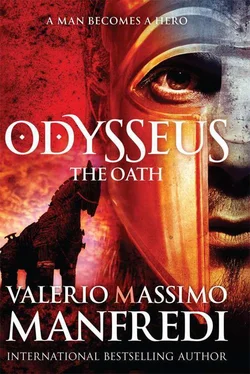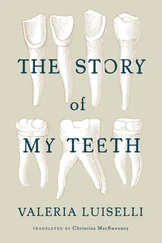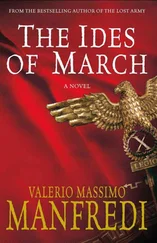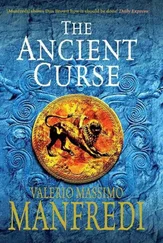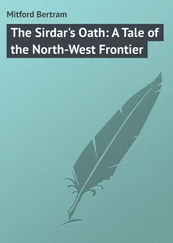Valerio Mafredi - The Oath
Здесь есть возможность читать онлайн «Valerio Mafredi - The Oath» весь текст электронной книги совершенно бесплатно (целиком полную версию без сокращений). В некоторых случаях можно слушать аудио, скачать через торрент в формате fb2 и присутствует краткое содержание. Год выпуска: 2013, ISBN: 2013, Издательство: Macmillan, Жанр: Исторические приключения, на английском языке. Описание произведения, (предисловие) а так же отзывы посетителей доступны на портале библиотеки ЛибКат.
- Название:The Oath
- Автор:
- Издательство:Macmillan
- Жанр:
- Год:2013
- ISBN:9780230769335
- Рейтинг книги:3 / 5. Голосов: 1
-
Избранное:Добавить в избранное
- Отзывы:
-
Ваша оценка:
- 60
- 1
- 2
- 3
- 4
- 5
The Oath: краткое содержание, описание и аннотация
Предлагаем к чтению аннотацию, описание, краткое содержание или предисловие (зависит от того, что написал сам автор книги «The Oath»). Если вы не нашли необходимую информацию о книге — напишите в комментариях, мы постараемся отыскать её.
The Oath — читать онлайн бесплатно полную книгу (весь текст) целиком
Ниже представлен текст книги, разбитый по страницам. Система сохранения места последней прочитанной страницы, позволяет с удобством читать онлайн бесплатно книгу «The Oath», без необходимости каждый раз заново искать на чём Вы остановились. Поставьте закладку, и сможете в любой момент перейти на страницу, на которой закончили чтение.
Интервал:
Закладка:
The moment had thus come for the final test. Men and women had gathered on the walls of Troy and the standards that always accompanied the king were flying at the top of the tower flanking the gate. Perhaps Andromache herself was watching in anguish as her husband faced such terrible danger.
I could not bring myself to watch the end of such a valiant, worthy hero, who had allowed himself to be blinded by the thirst for glory and defeated by his love for his homeland. Nor could I have watched his end had I wanted to: tens of thousands of warriors were thronging in front of us and it would have been impossible to make our way through the fray.
‘Let’s turn back,’ I said to Eumelus. ‘We’ve done what we could. Now all will be decided by fate, whom even the gods fear.’
We were the first to reach the rampart. Eumelus tied his horses to one of the palisade trunks, without removing their yoke, and we both went up to the sentry walk. The plain stretched out before us littered with lifeless bodies; already the stray dogs were creeping close. Other warriors, wounded or crippled, were struggling to make their way back to the camp. The sun was on our left, already descending towards the sea. The great black clouds crowning Mount Ida were rent by lightning bolts. The dying sun cast bloody stains on their wind-tattered edges.
All at once, the thunder hushed, the lightning ceased, even the voice of the sea vanished. In the utter silence we heard a cry, muffled by the distance. A cry of despair and delirium that rose like a dart into the impassive sky and finally died there in a long, agonizing lament.
‘Hector is dead,’ I said. Then we saw the army split and draw back into two wings to allow the passage of. . the chariot of Achilles, which crossed the plain and then the ditch and then the rampart. Dragging behind it, in the dust, the broken body of Hector, stripped of his arms: the Trojan prince, untiring defender of sacred Troy.
31
Achilles proclaimed solemn funeral games in Patroclus’ honour, so that his friend’s shade might find peace. It was said that Patroclus had appeared to his friend in a dream, to ask for the sacred rites to be held as soon as possible. All the kings and princes were to participate.
In the meantime, Merion, the shield-bearer of wanax Idomeneus, had led a party of men armed with axes to cut down a great number of oaks on Mount Ida. The logs were dragged back by mules, trimmed using hatchets and piled up to build a funeral pyre. When the pyre had been completed the funeral procession moved out. In front were the war chariots with heroes and drivers decked in their best armour. Then a great number of warriors on foot. At the centre was the bier, borne by six men, with Achilles at its end cradling the dead man’s head in his hands. As the procession passed, the Myrmidons cut off locks of their hair and let them fall onto the corpse. Last of all, Achilles sheared off the long plait he always wore because he had vowed to the god of the Spercheios river that he would loosen it only upon his return home. But there would be no return, and his hair would honour his fallen friend instead. The squared-off pile of wood, one hundred feet long on every side, was ready and Patroclus’ body was laid on top with his sword at his side.
Then the games began. A part of the camp had been cleared for the races, which Achilles himself would judge. In addition to the chariot race, there were contests in archery, wrestling, running and sword duels. I took part in them as well, and I won the running race, but only because Ajax Oileus slipped on the dung of the sacrificed bulls. And I wrestled honourably with Great Ajax; whoever would have believed it! Ajax also took part in a sword duel against Diomedes; the king of Argus was first to wound his opponent, only grazing Ajax’s skin, but Achilles stopped the fight immediately, assigning the victory to both in equal measure.
The time came for the final honours over the hero’s body: first fire, then blood.
All the kings and princes were present in the front row: the two Atreides, Agamemnon and Menelaus, at the centre; to their right Diomedes, Thoas, Sthenelus, Nestor and Antilochus; to their left Great Ajax, myself, Ajax Oileus, Idomeneus, Makahon and Menestheus of Athens. Behind us the whole army thronged, each man dressed in his best armour. Four Myrmidons of the honour guard set fire to the four corners of the enormous pyre.
The flames were whipped up by the wind coming from the sea. They rose high, seething and roaring and turned from red to white as the entire pile of timber sizzled and burned. Even the sea seemed to take flame as the reflections of the blaze spread out. Then blood. The Trojan prisoners were dragged to the site of the funeral rite, their hands tied behind their backs with willow shoots. Like beasts to be sacrificed, they were pushed to their knees and slain with a single sword’s blow between the shoulder blade and collarbone. When the tip sank into the heart, a fountain of blood spurted upwards and the victim collapsed as life fled.
One after another, the bodies of the sacrificed Trojans were thrown onto the pyre, offered to the lord of Hades, so they could serve the dead man in the afterlife.
I had long become accustomed to any and all atrocities in so many years of war and I realized that such a brutal act did not touch me. My heart was not horrified. But it was this very lack of horror that wounded me as if an arrow had been plunged into my chest.
The name of the dead man was shouted out ten times by the Myrmidons lined up in formal order, and then by the kings and by the whole army, who beat their spears against their shields with a thunderous roar.
When the pyre was consumed, the priests gathered the bones of the dead man and bent the incandescent sword with pincers so that it could be buried with his urn. Achilles looked like a man gone insane. His eyes were dry, and he stood straight and motionless in front of the blaze that sent off its last sparks. I think he could see himself reduced to ashes in the crumbling firebrands of the pyre. They had burned his shadow and now the ministers of Death were gathering, howling like starving dogs, around him. Outside his tent lay Hector’s body unburied, his spirit still hovering restless over the muddy banks of the Acheron, futilely seeking a place on the boat of hell’s own ferryman. Patroclus’ ghost would pass him by at a run, sprinting to cross the black waters.
I looked at Hector’s body for a moment. Swollen, bruised, covered with clotted blood, unrecognizable. Nothing remained of the glorious warrior, splendid as a star, who had attacked our vacillating defences with his fierce battle cry. For an instant I thought I saw my own body abandoned on a deserted beach in a remote, unknown land. I saw myself, someone, No One. There’s no escaping fate. Would I suffer the same destiny?
I waited until everyone had gone, waiting in the shadows until the moon set. I had a premonition. The Great Bear had descended towards the mountains, at the lowest point of the sky, when a hooded figure appeared out of nowhere and entered Achilles’ tent furtively. He made no noise at all, almost as if he were not touching the ground. The guards did not move — were they sleeping? Was it perhaps a god moving in the dark, in human guise? I didn’t take a single step, but remained where I was, hidden in the shadows. After a short time, the hooded man left Achilles’ tent, and a cart appeared pulled by a horse. Four Myrmidon warriors lifted the corpse of Hector and placed it upon it. The hooded figure, whoever it was, covered the body with a black cloth, got into the cart, took the reins and moved off slowly without making a sound.
A voice at my right: ‘Achilles showed pity.’
My knees trembled. Only a god could have known so much. ‘Who are you?’ I asked.
Читать дальшеИнтервал:
Закладка:
Похожие книги на «The Oath»
Представляем Вашему вниманию похожие книги на «The Oath» списком для выбора. Мы отобрали схожую по названию и смыслу литературу в надежде предоставить читателям больше вариантов отыскать новые, интересные, ещё непрочитанные произведения.
Обсуждение, отзывы о книге «The Oath» и просто собственные мнения читателей. Оставьте ваши комментарии, напишите, что Вы думаете о произведении, его смысле или главных героях. Укажите что конкретно понравилось, а что нет, и почему Вы так считаете.
